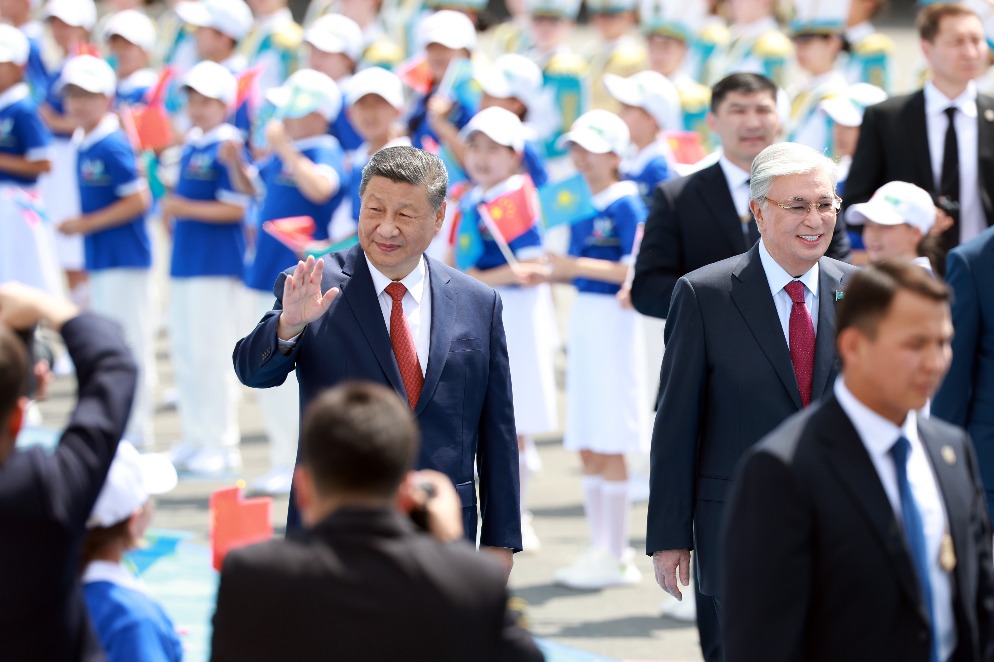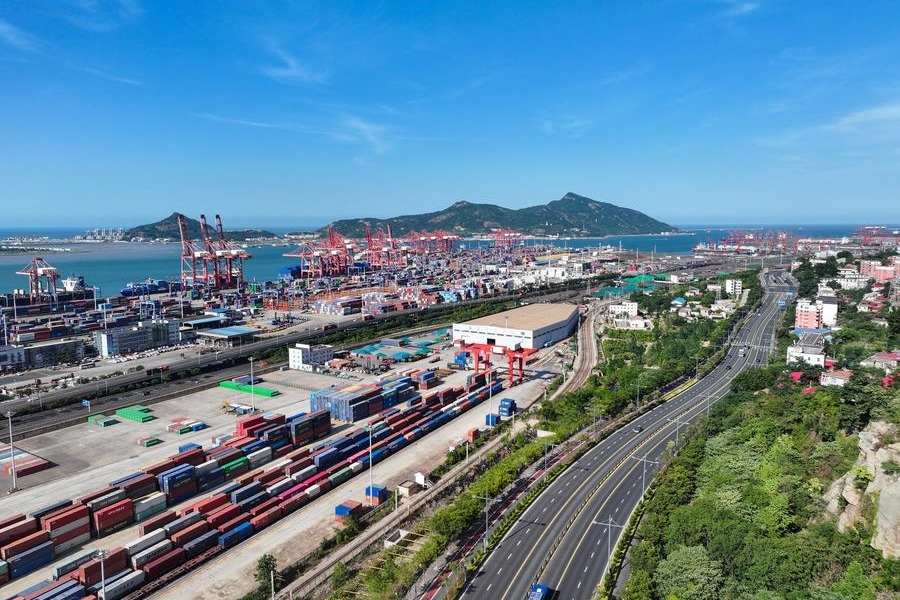Hong Kong to forge ahead toward prosperity


Since its return to the motherland in 1997, Hong Kong has made remarkable achievements following the "one country, two systems" principle. And in its 25th year, the Hong Kong Special Administrative Region has returned to the right track of "one country, two systems" after some twists and turns.
Hong Kong will slip into chaos again if it does not adhere to the "one country, two systems" principle, and will continue to be a thriving global financial and logistics hub if it stays on track.
In the recent past several years, Hong Kong's high-quality development had instilled a false sense of superiority among some of its residents, prompting them to reject "one country, two systems" and even question China's sovereignty over the SAR. Some Hong Kong residents tried to block national security legislation, which was required in Article 23 of the Basic Law, and oppose the National People's Congress' interpretation of the Basic Law.
Besides, a small number of radicals in Hong Kong colluded with foreign and separatist forces to derail "one country, two systems", challenging China's sovereignty and national security, and seriously destabilizing normal life in the city. Some legislator-designates even voiced support for "Hong Kong independence" while taking oath in 2016; the radicals led violent anti-extradition protests and some even tried to topple the Hong Kong government.
These deviations from "one country, two systems" triggered social unrest, hindered economic growth and endangered national security, prompting the central government to exercise its constitutional powers to put the SAR back on the right track.
Hong Kong now has a new constitutional order, which ensures "patriots administering Hong Kong" should be the core principle of governance.
The central authorities have overall jurisdiction over Hong Kong in accordance with the Constitution and the Basic Law. Hong Kong is not an independent political entity but a local administrative region. Yet the central government respects the city's "high degree of autonomy" and supervises the application of the "high degree of autonomy".
Since Hong Kong's political and economic systems are different from those of Western economies, the city should not try to usher in Western-style democracy. More important, the city's authorities, with the help of the central government, should plug all the legal and economic loopholes to prevent any Hong Kong resident or other entity from colluding with anti-China forces in the West to foment trouble in the SAR and endanger national security. Instead, Hong Kong should develop a socioeconomic and political system with Hong Kong characteristics.
Also, Hong Kong should shift focus from political divisions to boosting economic growth and improving people's livelihoods, not least because the city for long has been suffering from "pan-politicization". With the rapid growth of other economies in the region such as Singapore putting immense competitive pressure on Hong Kong, it cannot afford any more disruptions to economic growth.
Moreover, Hong Kong should make efforts to further integrate with the overall national development plan, because the Chinese mainland will always support its development along the right path. The city should also seize the opportunities created by the central government, including the 14th Five-Year Plan (2021-25), and become an integral part of the Belt and Road Initiative and the Guangdong-Hong Kong-Macao Greater Bay Area. By taking advantage of "two systems", Hong Kong can surely create more miracles and better serve the country.
Hong Kong's return to the right track of "one country, two systems" can be attributed to the central government's experience of governing Hong Kong for a quarter of a century-and the city can use it as a new starting point to propel its economic growth and improve people's livelihoods.
With the strong support of the central government and the new SAR leadership, Hong Kong will definitely forge ahead under the "one country, two systems" framework.
The views don't necessarily represent those of China Daily.
The author is a distinguished associate researcher at the Center for Basic Laws of Hong Kong and Macau Special Administrative Regions, Shenzhen University.
































